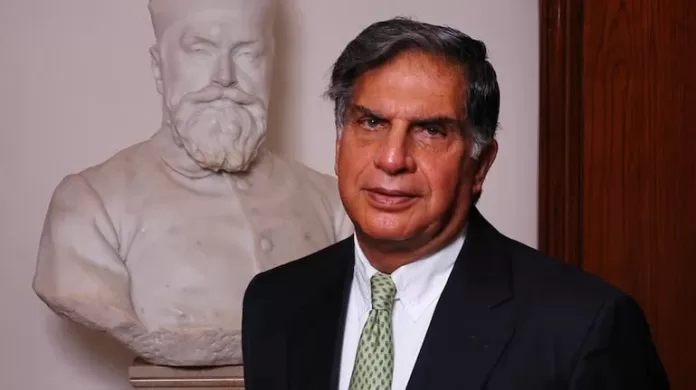The world mourns the loss of Ratan Tata, an iconic business leader who shaped India’s corporate landscape and left an indelible legacy through his transformative leadership at Tata Group. Born on December 28, 1937, Ratan Tata’s journey from the shop floors of Tata Steel to becoming Chairman of Tata Sons is a story of vision, ethical leadership, and an unrelenting commitment to societal progress.
Early Life and Leadership Journey
Ratan Tata was born into the Tata family, inheriting a legacy of leadership and industrialism. Educated at Cornell University and Harvard Business School, his initial foray into business began humbly. He worked on the shop floors of Tata Steel, gaining first-hand experience of the company’s operations. This early exposure gave him a deep understanding of the company, helping him later steer Tata Group during critical junctures.
In 1991, as India stood on the brink of economic liberalization, Ratan Tata assumed the role of Chairman at Tata Sons. His leadership came at a pivotal time when India’s markets were opening up, and industries had to adapt or face decline. Tata seized the opportunity, guiding Tata Group through modernization, diversification, and international expansion, solidifying its position as a global conglomerate.
Global Expansion and Major Acquisitions
Ratan Tata’s visionary leadership took Tata Group beyond Indian shores. Under his stewardship, Tata companies made some of the most remarkable global acquisitions that transformed the group into a multinational corporation. In 2000, Tata Tea (now Tata Global Beverages) acquired UK-based Tetley, marking one of the group’s first major international forays. Tata Motors followed suit by acquiring South Korea’s Daewoo Commercial Vehicles and, in 2008, the iconic British automotive brands Jaguar and Land Rover.
These strategic acquisitions not only expanded Tata Group’s global footprint but also revitalized the acquired companies. The Jaguar Land Rover deal, completed during a global recession, was initially questioned by many. However, Ratan Tata’s belief in the brand and his vision for the future helped turn JLR into a profitable venture within a few years. His leadership made Tata Group synonymous with global excellence, placing Indian businesses on the world stage.
Commitment to Innovation and Social Impact
Beyond business success, Ratan Tata was always focused on using innovation for social good. The launch of the Tata Nano in 2009, touted as the world’s most affordable car, was an ambitious project aimed at providing millions of Indian families with access to personal mobility. Though the Nano didn’t meet commercial expectations, it remains a symbol of Tata’s relentless pursuit of inclusive innovation.
Ratan Tata was equally dedicated to improving society through philanthropy. Tata Trusts, which own a significant portion of Tata Sons, has contributed to numerous social initiatives. From healthcare and education to rural development, Tata’s philanthropic arm worked tirelessly to uplift the underprivileged. Ratan Tata himself believed that businesses should not only serve shareholders but also the community at large.
Ethical Leadership and Corporate Responsibility
Throughout his life, Ratan Tata was known for his commitment to ethical leadership. He firmly believed that business should be conducted with transparency, integrity, and a focus on societal welfare. Under his leadership, Tata Group became a beacon of corporate governance and ethical business practices. He upheld the principle that companies must be socially responsible, a sentiment reflected in the group’s approach to corporate social responsibility (CSR).
Tata Group’s CSR initiatives under Ratan Tata’s leadership ranged from promoting education and skill development to environmental sustainability and healthcare. The group’s commitment to community welfare was embodied in projects that focused on rural empowerment, ensuring that Tata companies contributed to the nation’s development beyond the boardroom.
Legacy of Inspiration
Ratan Tata’s retirement in 2012 marked the end of an era, but his legacy continued to inspire business leaders worldwide. He became a mentor and angel investor for startups in various sectors, from technology to healthcare, offering not just financial backing but also invaluable advice. His belief in young entrepreneurs and his willingness to support their ventures showcased his forward-thinking mindset, even after stepping down from the daily operations of Tata Group.
Ratan Tata’s life is a story of humility, leadership, and vision. He received numerous accolades, including the Padma Vibhushan, India’s second-highest civilian honor. Yet, despite his towering achievements, Ratan Tata remained down-to-earth, always accessible to those who sought his wisdom.
The passing of Ratan Tata marks the end of an extraordinary chapter in India’s business history. His life was dedicated not just to building a global conglomerate but to creating an ecosystem where businesses thrive on values and ethics. From global acquisitions that changed the face of Indian business to his unparalleled contributions to society, Ratan Tata’s legacy will continue to inspire future generations of business leaders. His impact, both on India and the world, will be remembered as one of excellence, compassion, and visionary leadership.














